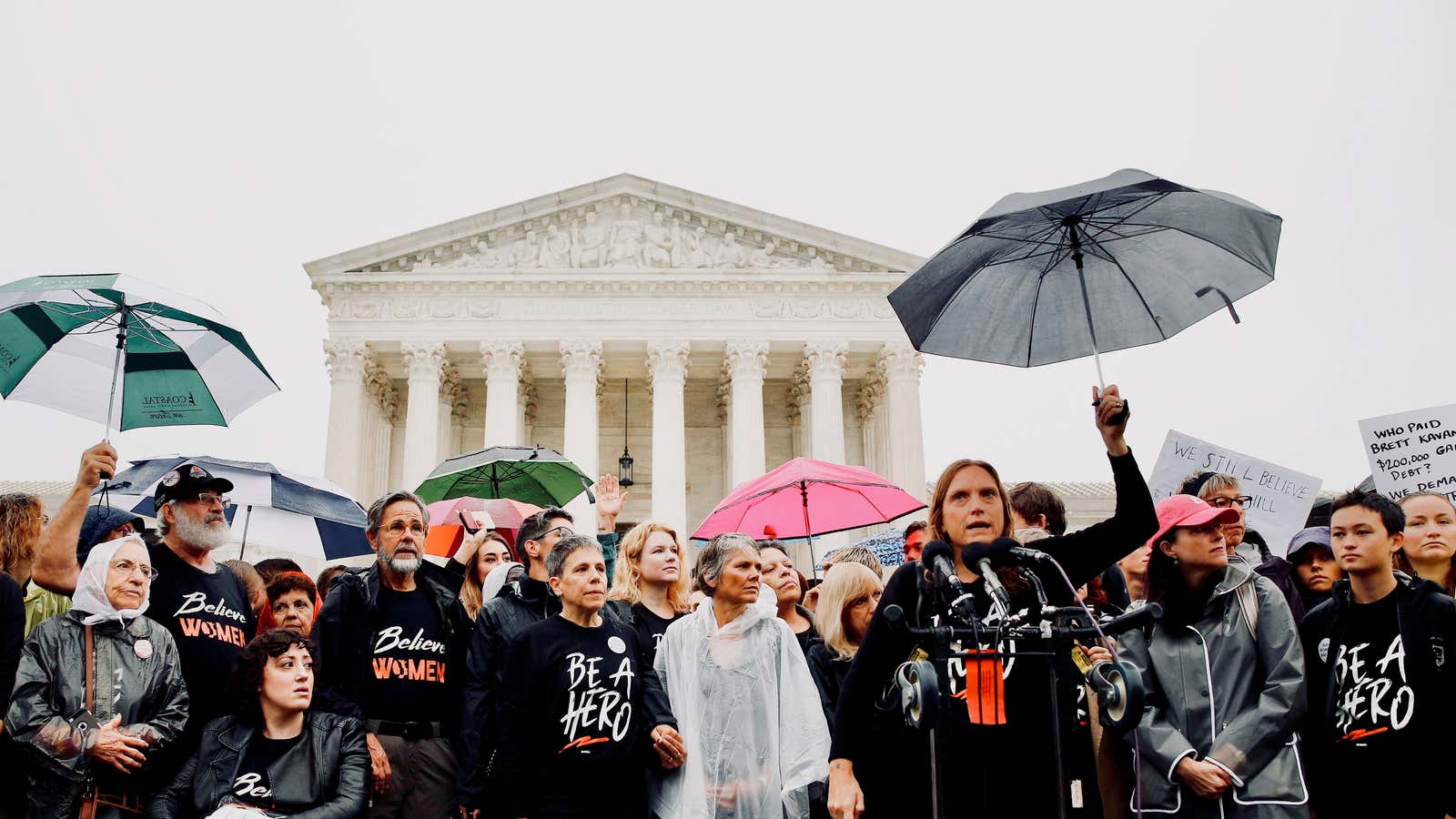US Supreme Court nominee Brett Kavanaugh will testify before the Senate Judiciary Committee on Thursday (Sept. 27) about the sexual misconduct allegations stalling his confirmation process. The nominee has opinions about how such hearings should go.
If Kavanaugh is held to the standard he articulated for president Bill Clinton when working for the Office of Independent Counsel Kenneth Starr in 1998, during an investigation into the president’s relationship with the intern Monica Lewinsky, the hearings will not be easy. At the time, Kavanaugh authored a memo, entitled “Slack for the President?” The answer to the memo’s titular question was, basically, “No.” Kavanaugh wrote then:
After reflecting this evening, I am strongly opposed to giving the President any “break” in the questioning regarding details of the Lewinsky relationship…I have tried hard to bend over backwards and to be fair to him and to think of all reasonable defenses to his pattern of behavior. In the end, I am convinced that there really are none. The idea of going easy on him at the questioning is thus abhorrent to me.
Twenty years ago, when Kavanaugh was contemplating Clinton’s affairs, he expressed a desire to get to the bottom of the misconduct and showed little mercy for the president. But he did show remarkable compassion for the young woman involved.
“What has especially convinced me of the appropriateness of obtaining his ‘full and complete’ testimony regarding the details of his relationship are the sheer number of his wrongful acts,” Kavanaugh wrote of Clinton. “The President has disgraced his Office, the legal system, and the American people by having sex with a 23-year-old intern and turning her life into a shambles—callous and disgusting behavior that has somehow gotten lost in the shuffle.”
Kavanaugh’s insistence in the memo that Clinton speak for his transgressions helped lead (paywall) to Clinton’s impeachment, ultimately. Now Kavanaugh himself is facing serious allegations of nonconsensual sexual misconduct by Christine Blasey Ford, Deborah Ramirez, and Julie Swetnick, and a fourth anonymous complaint arising from an alleged incident in 1998. These make his previous assessment of the president’s behavior all the more poignant. In 1998 Kavanaugh stated of Clinton:
He should be made to account for all of that and to defend his actions. It may not be our job to impose sanctions on him—but it is our job to make his pattern of revolting behavior clear—piece by painful piece…I am mindful of the need for respect…But in my view, given what we know, the Office of the President will best be served by our gathering the full facts regarding the actions of this President so that Congress can decide whether the interests of the Presidency would best be served by having a new President.
In other words, Kavanaugh understands as well as anybody why people might be unhappy to see a man retain or attain power without the proper character for a lofty position. As the nominee himself noted two decades ago, “More to the point. Aren’t we failing to fulfill our duty to the American people if we willingly conspire with the President in an effort to conceal the true nature of his acts?”
Perhaps then, he can sympathize with the many Americans who are demanding that Kavanaugh be able to live up to the standard he eloquently expressed himself twenty years ago, if he is to become a Supreme Court justice.
